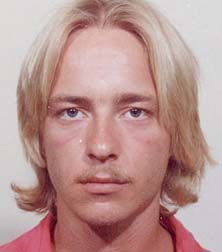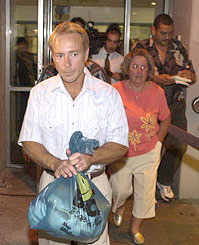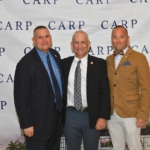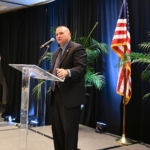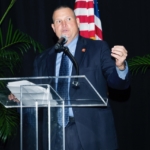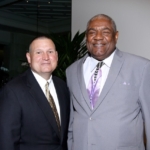2015

Does Innocence Matter in Florida? A Tale of Exoneration
Kelly Landers / 0 Comments /Photo, Right: Wilton Dedge in 1982, age 20. Photo, Left: Aug. 12, 2004: Wilton Dedge,age 42, walks free, his mother Mary behind. His parents visited him monthly during his 22 years in prison; they borrowed from pension plans, family and friends to raise nearly $200,000 to defend him.
As of Nov. 2nd, more than 6,000 federal prisoners have been released earlier than they once expected. Moreover, over the next few years, — as a result of an across-the-board adjustment of federal drug penalties by the United States Sentencing Commission — tens of thousands more inmates may benefit from reductions in their terms, and new sentences will be somewhat shorter than they were in recent decades.
Lost among reports of this in the news is the fact that, according to the Innocence Project, there are at least 40,000 people in prison today who have been wrongfully convicted.
Since 1989, there have been 333 post-conviction DNA exonerations. Behind each exonerated prisoner is a person with a life and a family beyond prison bars.
Flaws in the System
Wilton Dedge of Florida is one exoneration case that reveals flaws in the criminal justice system.
In 1982, Mr. Dedge was convicted in Brevard County, Florida, of sexual battery, aggravated battery, and burglary. He was sentenced to two concurrent life sentences. He served 22 years before he was exonerated 8/12/2004.
The reasons for his false conviction include eyewitness misidentification, misuse of criminal informants, and unvalidated/improper forensic science. He was convicted despite testimony of six (6) people who swore he was at a garage nearly 45 minutes away from the crime scene. The real perpetrator has never been found.
Post-Conviction
Like other exonerees, Dedge wrote to the Innocence Project for help after seeing founder Barry Scheck interviewed on the “Phil Donahue Show” in 1993, while in prison.
In 1996, Dedge was one of the first Florida inmates to seek post-conviction DNA testing, — several years before the state passed its 2001 law providing for such testing. He won that motion in 2000, and, in June 2001, mitochondrial DNA testing proved that the pubic hair used as evidence to convict him was not his.
Even after post-conviction testing proved Dedge was innocent, he remained in prison and the State thwarted his efforts to gain freedom. The Innocence Project and local counsel, Milton Hirsch, (now Judge Milton Hirsch in the Eleventh Judicial Circuit Court) asked the court to overturn Dedge’s conviction on grounds of innocence. The State, however, argued that because Dedge had won access to DNA testing too early – before there was a law governing post-conviction DNA testing – he could not benefit from the new law.
For three years, the State opposed Mr. Dedge’s motions on procedural grounds. In this case, as well as in other exoneration cases another argument used was that the criminal justice system needs “finality.”
These paradoxical arguments were roundly rejected last summer by Brevard Circuit Judge Silvernail and again by the 5th District Court of Appeal in April 2004. Eight years after he requested post-conviction DNA testing, Wilton Dedge was exonerated and released from Florida prison. He was 42 years old.
Life After Exoneration
Like other exonerees, upon release Dedge was not provided with compensation, job-training, education, or counseling. Potential employers didn’t ask if he had ever been wrongfully convicted of a crime – only if he had been convicted.
For many in life after exoneration, it is a tough realization that others in their community don’t know they were exonerated; they are simply perceived as no longer in prison. Some exonerees even have difficulty getting their criminal records expunged.
There have been 333 post-conviction DNA exonerations in the United States. Exonerated prisoners include police officers and sales executives, and others without a prior criminal record. The 2005 film “After Innocence,” which tells the story of seven ethnically diverse male exonerees, illustrates how wrongful conviction and incarceration can happen to anyone. It is not merely about race or economic status.
If you are a concerned citizen and wish to learn more, you can begin by informing yourself through your local innocence initiative. And remember it is always wise to have an attorney present when speaking with the police.




